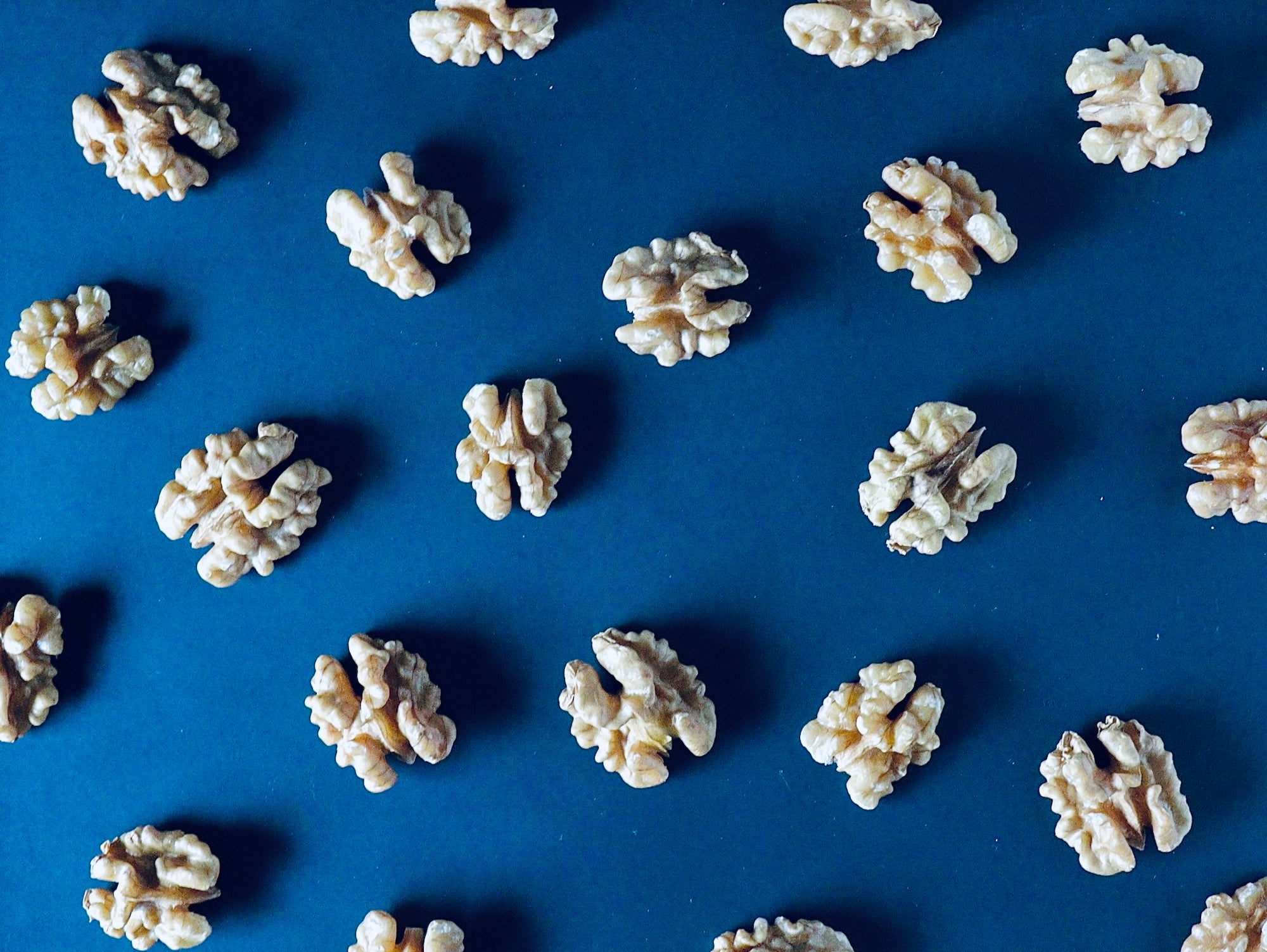In this series, we’re going to dive into nootropic mushrooms and the science behind their reported benefits. We’re big fans of mushrooms, as you’ve probably guessed. The problem is, so are a lot of other people: mushrooms have become wildly popular and have been marketed as the solution to many of our issues. So, we’ll attempt to break this down clearly and simply.
What are their purported benefits, and where is the evidence to support them?
When deciding whether to include an ingredient in our formula, we follow our ‘triangle of proof’.
This consists of:
- Human trials
- In vitro (lab) and in vivo (animal) studies
- Human observation
Let’s kick this off with everyone's favourite, Lion’s Mane.
Lion's Mane (Hericium erinaceus ) is a white, shaggy mushroom resembling a lion’s mane (funnily enough), and is known for its cognitive and neurological benefits. It grows naturally on hardwood trees in North America, Europe, and Asia, often in late summer or Autumn. When used for supplementation, it is cultivated on substrates like hardwood sawdust or logs in controlled environments. Once fully grown, the mushrooms are harvested, dried, and processed to extract their active compounds, mainly hericenones and erinacines. This extraction can be done using hot water (for polysaccharides) or alcohol (for terpenes), depending on the supplement form, to create capsules and powders.
Now let’s get into its benefits:
Cognitive function
Lion’s Mane supports cognitive function by stimulating nerve growth factor (NGF), which is essential for brain cell maintenance and function.
Study - Human trial
Docherty S, et al. The Acute and Chronic Effects of Lion's Mane Mushroom Supplementation on Cognitive Function, Stress and Mood in Young Adults: A Double-Blind, Parallel Groups, Pilot Study. Nutrients. 2023;15:4842.
Adults aged 18 to 35 years participated in a double-blind, placebo-controlled study where they were given either Lion’s Mane mushroom supplements or a placebo. Cognitive performance, stress levels, and mood were assessed at multiple intervals to observe both acute and chronic effects.
Results: The study observed improvements in processing speed and cognitive accuracy in participants who took Lion’s Mane supplements compared to the placebo group. Additionally, there was a trend toward lower subjective stress in those taking Lion’s Mane.
Conclusion: These results are promising and indicate that Lion’s Mane may support cognitive function and potentially reduce stress in healthy young adults. However, the study’s limitations, including its short duration and small sample size, highlight the need for further research with larger populations and extended study periods to confirm these findings and fully understand the effects of Lion’s Mane on cognitive health and stress management.
Study - Human trial
Mori, K., Inatomi, S., Ouchi, K., & Tominari, T. (2009).
The effect of Hericium erinaceus (Yamabushitake) on cognitive function in elderly individuals
Over 16 weeks, participants aged 50-80 years old, who had mild cognitive impairment, were given either 1000[GD4] mg of Lion’s Mane mushroom supplements or a placebo. Cognitive function was assessed before and after supplementation using a modified version of a test used to assess dementia.
Results: Lion’s Mane mushroom supplementation led to improvements in cognitive function in participants with mild cognitive impairment (MCI). Participants who took lion’s mane showed better cognitive test scores compared to those who received a placebo.
Conclusions: The results are promising and suggest that Lion’s Mane might benefit cognitive health in people with MCI. However, the study was a pilot with a small sample size, so while the findings are encouraging, further research with larger groups is needed to confirm the efficacy and safety for cognitive enhancement.
Focus
Focus is a vital trait in mental performance, especially with the ever increasing distractions from modern lifestyles. As part of the improvement in cognitive function, Lion’s Mane is reported to improve focus.
Study - Human trial
La Monica MB, et al. Acute Effects of Naturally Occurring Guayusa Tea and Nordic Lion’s Mane Extracts on Cognitive Performance. Nutrients. 2023;15:5018.
Participants were given either 800mg of Lion’s Mane or a placebo in a controlled setting. Cognitive performance, including focus and attention, was measured using various tasks before and after consumption.
Results: The Lion’s Mane extract significantly improved focus and attention in participants. Compared to the placebo, those who consumed Lion’s Mane exhibited better performance on tasks requiring sustained attention and concentration.
Conclusions: The findings suggest that Lion’s Mane can acutely enhance focus and attention. While these results are promising, further research is needed to explore long-term effects and the underlying mechanisms contributing to improved cognitive performance.
Memory
As we age, memory recall declines due to neurobiological changes, reduced neurogenesis, decreased blood flow, and changes in brain chemistry. This begins around mid-life but it can be delayed.
Lion’s Mane has the potential to support memory recall and recognition.
Study - Human trial
Science Daily. (2023, February 10).
Mushrooms magnify memory by boosting nerve growth.[GD7]
Participants were given 1000 [GD8] mg of lion’s mane mushroom extract daily for 4 weeks. Memory function was tested using a combination of memory recall tests, recognition tests, and neuropsychological assessments to evaluate memory retention, retrieval, and overall cognitive function.
Results: Supplementation with Lion’s Mane mushroom extract led to significant improvements in memory function. Participants who consumed Lion’s Mane showed enhanced memory recall and recognition compared to those who received a placebo. This effect is attributed to increased production of nerve growth factor (NGF), which is essential for neuronal health and memory.
Conclusions: The study supports the potential of Lion’s Mane to boost memory function through its role in promoting nerve growth. The results are encouraging, but additional research is needed to confirm these findings and evaluate the long-term impact of Lion’s Mane on memory and cognitive health.
Human observation
Lion's Mane has been used In traditional Chinese medicine and Japanese medicine for centuries to support brain health, improve memory, and enhance cognitive function.
Neurodegenerative disease prevention
Lion’s Mane has the potential to remove amyloid plaque, which is linked to Alzheimers, from the brain.
Study - Animal study
Tzeng TT, et al.. Erinacine A-enriched Hericium erinaceus mycelium ameliorates Alzheimer's disease-related pathologies in APPswe/PS1dE9 transgenic mice. J Biomed Sci. 2016;23:49.
Researchers administered Erinacine A-enriched lion’s mane mycelium to transgenic mice modelling Alzheimer's disease. The treatment lasted for 30 days, with a dosage tailored to the study's experimental design. The study evaluated the effects on Alzheimer's-related pathologies by measuring amyloid-beta plaque accumulation, neuroinflammation, and cognitive function
Results: Erinacine A-enriched Lion’s Mane mycelium improved several Alzheimer’s disease-related pathologies in the mice. The treatment led to reduced amyloid-beta plaque accumulation, decreased neuroinflammation, and improved cognitive function in the mice.
Conclusions: The results indicate that Erinacine A-enriched Lion’s Mane may help mitigate key features of Alzheimer’s disease, including plaque formation and cognitive decline. While the findings are promising, further research in human trials is necessary to validate these effects and assess the potential therapeutic benefits for Alzheimer's disease.
Depression and anxiety management
Emerging research on the potential for Lion’s Mane to support reducing symptoms of depression and anxiety looks promising.
Study – Human trial
Nagano M, et al. Reduction of depression and anxiety by 4 weeks Hericium erinaceus intake. Biomed Res. 2010;31:231–7.
Researchers assessed changes in symptoms of depression and anxiety using standardised psychological scales before and after the supplementation period
Results: After 4 weeks of Hericium erinaceus (Lion’s Mane) intake, participants experienced significant reductions in symptoms of depression and anxiety. The treatment led to improvements in mood and reductions in anxiety levels, as assessed by standardised psychological scales.
Conclusions: The study suggests that Lion’s Mane may be effective in alleviating symptoms of depression and anxiety. These results are promising, but further research with larger sample sizes and longer durations is needed to confirm the efficacy and understand the mechanisms behind Lion’s Mane’s effects on mood disorders.
Summary
Above is a selection of some of the emerging research highlighting Lion’s Mane's potential for improved cognition, neuroprotection, and mental health.
Early human trials indicate that Lion’s Mane can enhance cognitive performance, focus, and memory by promoting nerve growth and supporting brain health. Other studies also suggest that it may help with mild cognitive impairment, improve focus, and potentially reduce symptoms of depression and anxiety.
This is all very promising, but they are based on relatively small studies and pilot trials. More extensive research with larger numbers of participants and well-defined dosage guidelines is needed to confirm these effects and establish conclusive evidence of the benefits of Lion’s Mane. While it’s unlikely we’ll see such studies (due to the lack of financial incentive), we conclude that the evidence from human and animal studies, along with the centuries of use in traditional Chinese and Japanese medicine, indicate that Lion’s Mane has the ability to support brain health. It has, therefore been included in our formulation.






